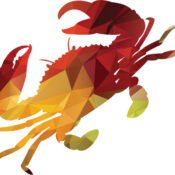Senior managing editor and logophile Andy Hollandbeck reveals the sometimes surprising roots of common English words and phrases. Remember: Etymology tells us where a word comes from, but not what it means today.
Separated only by a single n and pronounced identically, the words canon and cannon are about as similar as you can get. A look at the history of these words reveals that the similarity isn’t just coincidence: they come from the same root.
It all traces back to before ancient Greek, though exactly where is a point of some conjecture. In Greek, though, the word kanna meant “reed, cane” — in fact, kanna would become the English cane down the line. One nice thing about reeds is that they are fairly straight, which makes them useful for taking measurements, and so the Greek kanna also (probably) developed into kanon, which means both “any straight rod” and “rule or standard.”
Kanna was then adopted into Latin as canna “a reed or tube,” and kanon became canon “measuring line, rule.” And here’s where the two branches broke off in interesting ways.
After the Church adopted Latin as its lingua franca, the “rule” sense of the Latin canon was used to refer to the official rules, laws, and decrees of the Church. This passed through Old French and into Old English. It wasn’t until the early 20th century that we start to find, first among Sherlock Holmes enthusiasts, the fandom sense of canon — the material within a fictional universe that is considered officially true. Today, any new treatment of a Star Wars or Marvel property has fans arguing online about what is and isn’t canon.
By the end of the 16th century, canon had also found a foothold in the world of music. If you’ve ever sung “Row, Row, Row Your Boat,” with a new voice starting from the beginning every four beats, you’ve sung a canon. Though such pieces do get much more complex, they are bound by a set of rules that dictate, among other things, when each voice enters. It’s because of this focus on rules that this type of composition came to be called a canon.
Meanwhile, those old Greek and Latin reeds took a military turn. Over the 13th through 15th centuries, new weapons that relied on gunpowder put an end to the era of swords and arrows. One such armament consisted of — in a basic way — a large tube, closed at one end, into which would be packed some gunpowder and a projectile. Lighting the gunpowder would send that projectile on its way toward the enemy at great velocity.
This bit of military ordnance was a long, hollow tube — but a big one. So in Italy, they took the word canna, which evolved from “reed, tube,” and added an augmentative suffix, calling the weapon a cannone. (Two other etymologically related tube-shaped things from Italy: cannoli and cannelloni.)
The Italian cannone became a canon in Old French, which we start to find in early 15th-century English writings — still as the single-n canon. The doubling of the central n wouldn’t occur until the early 18th century, to differentiate it from the other, single-n canon used in Church and music.
Become a Saturday Evening Post member and enjoy unlimited access. Subscribe now




Comments
So canon also means what’s considered officially true or not, and in the four beats musical sense. And here I only thought the word was a military weapon, a favorite early-mid 70’s TV series, and the color copy machine I avoid when I want beautiful, high-end copies. Nothing less than Xerox, of course. Two of my favorite words start and end with ‘x’. Have to wonder how many others there are of those. I digress. For another column, another time.
It’s interesting how the Greek “kanna” was (later) adopted into Latin as the very similar “canna” and kanon becoming canon. Leave it to the Italians though to make the word sound like something we’d order off one of their menus; not something used on any kind of battlefield.